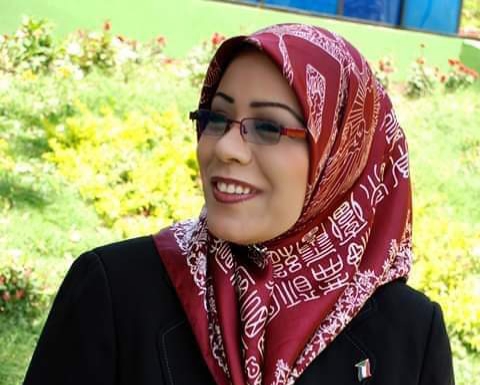War Has Many Faces

By Dr. Enas Mohammed Ahmed
War, with all its pain and tragedies, has never been a stranger to humanity. As wars have spread across various parts of the world, there has been significant advancement in the weapons used. Among the most destructive of these are chemical weapons, which first appeared in World War I when the German army released chlorine gas over a four-square-mile area, affecting 15,000 soldiers. The British later used it six months after in the same battles, causing numerous deaths and injuries. However, the use of chemical weapons in that war was considered primitive compared to the developments that followed.
Chemical weapons have since evolved beyond chlorine gas, with more lethal variants discovered. Their destructive capacity can now span thousands of miles, leaving detectable traces and causing a wide range of illnesses including cancers, congenital deformities, paralysis, and fatal burns — but certainly not diseases like cholera, for instance!
To deploy such a weapon (chemical), several key factors are essential:
1. The gas must be highly toxic, corrosive, and harmful to humans, animals, and the surrounding environment.
2. It must be chemically stable during manufacturing and storage until deployment.
3. It should be composed of raw materials that are readily available in sufficient quantities for military use.
4. It must be transportable and carriable with extreme caution due to its danger.
Experts state that these gases impact water surfaces, soil, hills, and tall buildings. Specialized committees and international organizations can easily detect such chemical elements. The Chemical Weapons Convention (CWC) outlines clear procedures for inspecting and collecting evidence when a state is accused of using chemical weapons. It details how a team of experts is dispatched and how technical reports are prepared to convict a state if chemical weapon use is proven.
These processes are based on evidence, not claims or speculation via the media. So, have any expert teams visited the alleged chemical attack sites in Sudan? Were any soil or water samples tested in those areas? Was any biological residue analyzed? Has there been a formal international investigation by the Organization for the Prohibition of Chemical Weapons (OPCW) or the United Nations regarding the use of chemical weapons?
These questions must come first.
Due to the gravity of the threat, the world worked to protect humanity from chemical weapons by establishing an international agreement — the Chemical Weapons Convention (CWC) — and forming the OPCW, headquartered in The Hague, Netherlands. The treaty entered into force on April 29, 1997, expanding upon the 1925 Geneva Protocol on chemical weapons. The treaty prohibits the use, production, stockpiling, and transfer of chemical weapons. It authorizes the OPCW to inspect any member state suspected of violations, following clearly defined procedures. The treaty now includes 193 states.
The OPCW was awarded the Nobel Peace Prize in 2013 for its efforts in combating the use of chemical weapons worldwide.
On the national level, Sudan joined the CWC on May 16, 1999, and has since been an active and committed member. Sudan has served on the OPCW Executive Council, chaired the African Group, and was most recently elected to the Executive Council during the 29th session held in The Hague in November 2024 for the term 2025–2027. Sudan’s leadership in this area reflects its awareness and commitment to the Convention and its international responsibilities — at the very least, Sudan must preserve its standing within the OPCW and its international credibility as a trusted and respected member state.
Therefore, the allegations made by the United States about Sudanese use of chemical weapons are simply another face of war — a new tactic — to apply political pressure on the Sudanese government. This comes after the failure of Abu Dhabi’s plans to destroy Sudan and the defeat of the terrorist militias by the Sudanese Armed Forces, despite the generous financial and logistical support provided by Abu Dhabi — which is merely a tool in the hands of sinister forces seeking to destroy our country. But not so fast!
Now comes Washington, accusing the Sudanese army of using chemical weapons — without involving the OPCW, without legal inspections, and without any evidence to back these fabricated claims. This bypasses the procedures set by the international treaty and the United Nations. Imposing sanctions on Sudan based on a press statement or misinformation amounts to politicizing international law and has nothing to do with justice.
The United States has a history of fabricating such allegations — first in Iraq, and later when it bombed the Al-Shifa pharmaceutical factory in Sudan with cruise missiles on August 22, 1998.
What is happening now is merely a continuation of the longstanding policy of targeting Sudan, including economic sanctions, international isolation, restrictions on exports and loans, and exploiting the current state of war to create chaos — all to force Sudan to accept foreign-imposed political solutions. But again, not so fast! Sudanese leadership and resolve will never accept this, regardless of the cost. After all, is there anything more difficult or bitter than war?
Nevertheless, Sudan must assert its legal rights and continue to pursue justice through the appropriate legal frameworks and under the rules of the Chemical Weapons Convention, responding seriously to these baseless accusations.
Salute to our armed forces, who bring security and peace wherever they go. Their arrival is met with joy and celebration from the people, and with them comes stability and reconstruction.
Source: Al-Muhaqqiq Website



